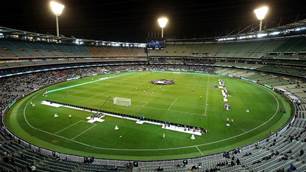A four-part FourFourTwo investigation into youth development starts in Brazil, where the nation’s cream is evaluated via a set of annual trials with a cast of thousands.
Page 4 of 4 | Single page
The infamous suburb Tavares Bastos is located on the mountains outside Flamengo. Five years ago, this suburb was known for cocaine and marijuana. Young motorcyclists drove the middle classes here so they could buy their stuff. The lines were extra long on Friday afternoons: a ‘white’ line for cocaine, a ‘brown’ line for marijuana. Charismatic drug dealer Borel ran the market. He loved football and made sure his battles with the police never came in the way of the small pitch he had funded. His men were told to escape into the rainforest if the police dared to approach them.
This is where Paulo Sergio was raised. “I got my first football clothes from Borel. He wanted me to be a goalkeeper. He gave me the lot – shorts, shirt, everything.”
Paulo Sergio’s mother works as a maid for an elderly woman; his father, Antonio, is working in a garage down by the beach, parking residents’ cars. As an extra job, he drives a taxi. Antonio built the family’s house himself. They pay 20 reais [£5] a month for 60 different TV channels, among them the privately owned SporTV and ESPN Brasil.
The bookshelf in the living room is filled with trophies. “My dad was a central defender. He was champion several times at the soil pitches in the Flamengo Park,” says Paulo Sergio proudly.
Antonio nods his head. “We were the toughest team,” he says, rolling up his
trousers to reveal battered legs showing the scars of 20 years of football.
In Paulo Sergio’s room there are many medals. Most are from his futsal career. “He was the best,” his father says. “When he turned nine he got his first salary, 500 reais [£123] a month. And this computer.”
An old PC is squeezed between video tapes and magazines on a desk. It’s hardly bleeding-edge, but it’s solid evidence of what clubs will do to hold on to players.
Vasco had seen Paulo in a tournament and wanted to sign him. “I went to his club Hebraica in Laranjeiras and told the chairman. ‘I don’t know what to do. Vasco are willing to give Paulo 700 reais [£173] per month if he starts playing for them.’ He was stunned. He said: ‘All right, this is what we’ll do. I’ll buy a computer for him. Is that OK?’” He laughs out loud.
When Paulo joined Flamengo a year later, he did not get any money from the transfer. “To be a part of Flamengo’s squad is the best thing for him. It’s a good education and he can easily go to another club later. But when he turns 16, they must show us some money. He’s not playing for free,” laughs Antonio.
Life in Tavares Bastos has improved since the municipality moved the headquarters of the military police here five years ago. Borel and his fellows escaped through the rainforest to other suburbs. “I’ve never had any problems. We live an easy life here on the hill,” says Paulo Sergio and looks out over Sugarloaf Mountain and Flamengo.
We walk down to the football ground where Paulo began his career. The municipality have made sure that Borel’s old soil pitch has become a grass pitch.
“I got my spot,” he grins. “The peneira is over. I will be one of the strikers. Wellington made it as well. We will be a strong team this year.”
What about the others? “I don’t know. Anthony refused 10 players this Friday. Maybe there will be 10 more this week. He doesn’t want too many.
What happened to Elton?
“Elton?”
The striker...
“Oh, the guy from Natal? The boat took him away.”
A couple of days later, we are back in Tito Araujo’s office. The Juvenil group is formed. Araujo’s mission statement is that in a few years Flamengo should be able to field a first team consisting of seven homegrown players. The U20 team already has several players on their way up – among them Zelio Junior, who many believe will be a big star. Those who are left, the club hope they can sell overseas.
“If you don’t have what it takes, then you’re out,” says Araujo. “That’s life. For you to become a journalist you had to fight, right?”
“Not from the age of eight,” I say.
He is silent for a few seconds. “What can I say? Life begins earlier in Brazil.”
One of his two mobile phones vibrates on the desk.
“Futebol,” he says and leans back on his chair. “Has he played for a club before? Which club? What position? All right, take him to a clinic and do a ECG and a regular medical. Send the papers to me...”
Since FourFourTwo’s visit to Flamengo, youth recruitment boss Tito Araujo has become director of the club’s futsal programme while U17 coach Antoro Sentoro has moved to rivals Fluminense to work at their academy. Like Zelio Junior, striker Paulo Sergio is now playing regularly for the Flamengo U20 team.
Get part three of this series in the September issue of the mag, in which we'll look at youth development in English football. The issue hits the newsstands on August 15.
This is where Paulo Sergio was raised. “I got my first football clothes from Borel. He wanted me to be a goalkeeper. He gave me the lot – shorts, shirt, everything.”
Paulo Sergio’s mother works as a maid for an elderly woman; his father, Antonio, is working in a garage down by the beach, parking residents’ cars. As an extra job, he drives a taxi. Antonio built the family’s house himself. They pay 20 reais [£5] a month for 60 different TV channels, among them the privately owned SporTV and ESPN Brasil.
The bookshelf in the living room is filled with trophies. “My dad was a central defender. He was champion several times at the soil pitches in the Flamengo Park,” says Paulo Sergio proudly.
Antonio nods his head. “We were the toughest team,” he says, rolling up his
trousers to reveal battered legs showing the scars of 20 years of football.
In Paulo Sergio’s room there are many medals. Most are from his futsal career. “He was the best,” his father says. “When he turned nine he got his first salary, 500 reais [£123] a month. And this computer.”
An old PC is squeezed between video tapes and magazines on a desk. It’s hardly bleeding-edge, but it’s solid evidence of what clubs will do to hold on to players.
Vasco had seen Paulo in a tournament and wanted to sign him. “I went to his club Hebraica in Laranjeiras and told the chairman. ‘I don’t know what to do. Vasco are willing to give Paulo 700 reais [£173] per month if he starts playing for them.’ He was stunned. He said: ‘All right, this is what we’ll do. I’ll buy a computer for him. Is that OK?’” He laughs out loud.
When Paulo joined Flamengo a year later, he did not get any money from the transfer. “To be a part of Flamengo’s squad is the best thing for him. It’s a good education and he can easily go to another club later. But when he turns 16, they must show us some money. He’s not playing for free,” laughs Antonio.
Life in Tavares Bastos has improved since the municipality moved the headquarters of the military police here five years ago. Borel and his fellows escaped through the rainforest to other suburbs. “I’ve never had any problems. We live an easy life here on the hill,” says Paulo Sergio and looks out over Sugarloaf Mountain and Flamengo.
We walk down to the football ground where Paulo began his career. The municipality have made sure that Borel’s old soil pitch has become a grass pitch.
“I got my spot,” he grins. “The peneira is over. I will be one of the strikers. Wellington made it as well. We will be a strong team this year.”
What about the others? “I don’t know. Anthony refused 10 players this Friday. Maybe there will be 10 more this week. He doesn’t want too many.
What happened to Elton?
“Elton?”
The striker...
“Oh, the guy from Natal? The boat took him away.”
A couple of days later, we are back in Tito Araujo’s office. The Juvenil group is formed. Araujo’s mission statement is that in a few years Flamengo should be able to field a first team consisting of seven homegrown players. The U20 team already has several players on their way up – among them Zelio Junior, who many believe will be a big star. Those who are left, the club hope they can sell overseas.
“If you don’t have what it takes, then you’re out,” says Araujo. “That’s life. For you to become a journalist you had to fight, right?”
“Not from the age of eight,” I say.
He is silent for a few seconds. “What can I say? Life begins earlier in Brazil.”
One of his two mobile phones vibrates on the desk.
“Futebol,” he says and leans back on his chair. “Has he played for a club before? Which club? What position? All right, take him to a clinic and do a ECG and a regular medical. Send the papers to me...”
Since FourFourTwo’s visit to Flamengo, youth recruitment boss Tito Araujo has become director of the club’s futsal programme while U17 coach Antoro Sentoro has moved to rivals Fluminense to work at their academy. Like Zelio Junior, striker Paulo Sergio is now playing regularly for the Flamengo U20 team.
Get part three of this series in the September issue of the mag, in which we'll look at youth development in English football. The issue hits the newsstands on August 15.
Related Articles

'It's fair to be pretty pissed off' - MCG fans down as Argentina-Brazil tie off

Brazil and Argentina must replay World Cup qualifier













